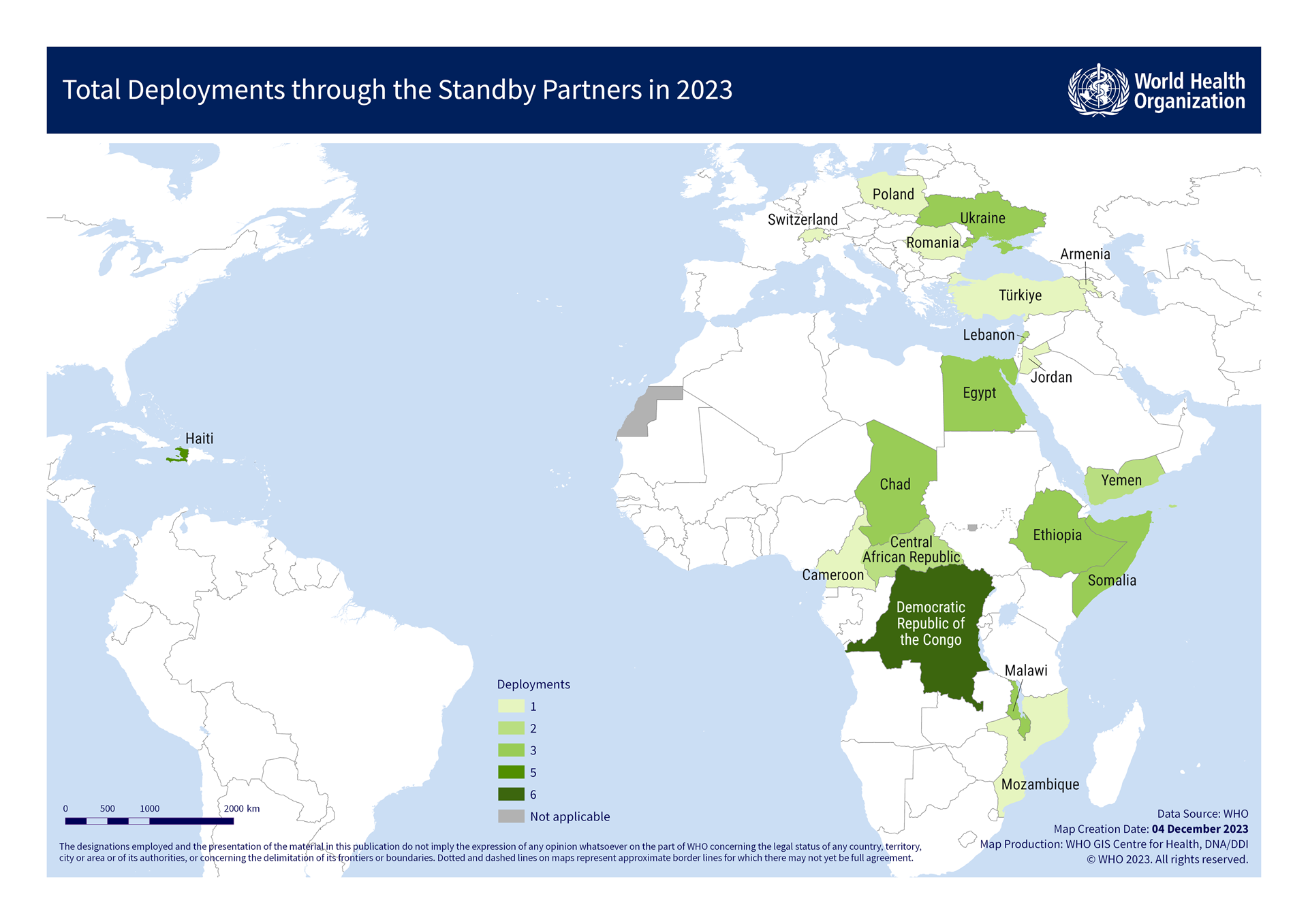
Standby Partners
Current Standby Partners
Support through the Standby Partners in current emergencies
In 2022, Standby Partners supported WHO’s response to 16 graded emergencies through deployment of surge personnel for a total of 416 months to over 30 WHO offices. Forty-three percent (43%) of these deployments were in support of the Health Cluster in 12 countries.
Over 75% of these expert deployments were in response to six Grade 3 emergencies: Ukraine emergency, Drought and Food Insecurity in the Greater Horn of Africa, Crisis in Northern Ethiopia, COVID-19 response, Afghanistan crisis, Pakistan Floods. Standby Partner personnel also supported WHO’s response to five Grade 2 emergencies: the Yellow Fever Outbreak response in the Lake Chad Basin, the Cholera Outbreak in Syria, Flood and Malnutrition emergencies in Madagascar, Sahel Region Humanitarian Emergency as well as other protracted emergencies in Mozambique, Bangladesh, South Sudan, and Myanmar.
Most deployed profiles through Standby Partners were: Information Management, Health Cluster Coordination, Prevention of Sexual Exploitation and Abuse (PSEA), Mental Health and Psychosocial Support (MHPSS), Risk Communication and Community Engagement (RCCE), WASH, Nutrition, Logistics, among many others.
In addition to deployments, Standby Partners have supported capacity-building activities and deployment of service modules. WHO is also an active member of the Standby Partner Network, as well as the International Humanitarian Partnership.
WHO appreciates the support received from its Standby Partners and contributing donors for the effective and quick deployment of surge personnel to respond to public health emergencies worldwide.

News

About Standby Partnerships
WHO holds Standby Partnership Agreements with external partners who provide short-term surge support to WHO’s emergency work. Standby Partners play a key role in strengthening the capacity of WHO and the broader health sector during all aspects of emergencies. These partners maintain deployment rosters of pre-screened and trained candidates who can be rapidly deployed to support WHO and the Health Cluster. The Standby Partner covers the core costs of a deployment and manages most administrative requirements. This allows WHO to rapidly and flexibly deliver surge capacity. WHO holds Standby Partnership Agreements with nine external partners who provide short-term surge support to WHO’s emergency work.








